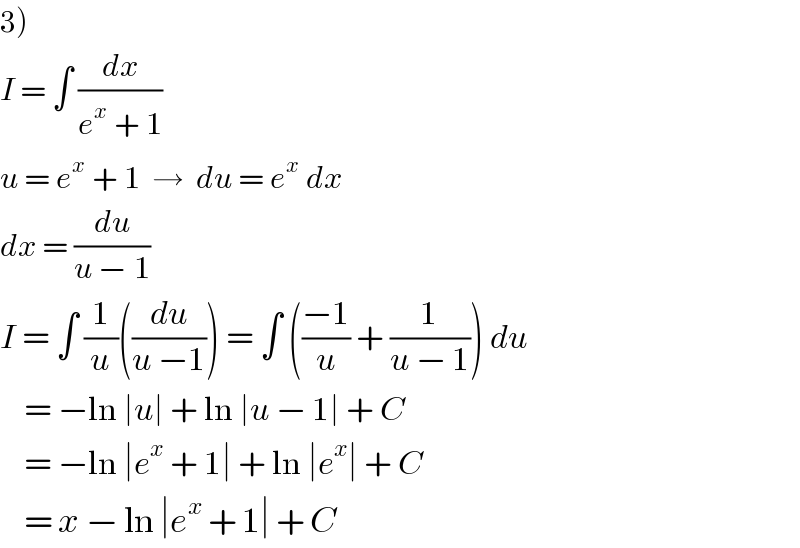
Question and Answers Forum
Question Number 50052 by cesar.marval.larez@gmail.com last updated on 13/Dec/18

Commented by maxmathsup by imad last updated on 13/Dec/18

Answered by peter frank last updated on 13/Dec/18
![4)∫(1/(cosx))dx cosx=((1−t^2 )/(1+t^2 )) t=tan (x/2) dx=((2dt)/(1+t^2 )) ∫((2dt)/(1−t^2 ))=∫(((1−t)+(1+t))/(1−t^2 )) =ln ((1+t)/(1−t))+B ln((1+tan (x/2))/(1−tan (x/2)))=ln [((cos(x/2) +sin (x/2))/(cos (x/2)−sin (x/2)))]⇒(rationalise denominator) ln [((1+sin x)/(cos x))]+D ln [secx+tan x]+D](Q50055.png)
Commented by maxmathsup by imad last updated on 13/Dec/18

Commented by $@ty@m last updated on 13/Dec/18

Commented by maxmathsup by imad last updated on 13/Dec/18

Answered by afachri last updated on 13/Dec/18

Answered by Joel578 last updated on 13/Dec/18

Answered by Joel578 last updated on 14/Dec/18

Commented by cesar.marval.larez@gmail.com last updated on 13/Dec/18

Commented by afachri last updated on 14/Dec/18

Commented by Joel578 last updated on 14/Dec/18

Commented by afachri last updated on 24/Dec/18

Answered by peter frank last updated on 13/Dec/18

